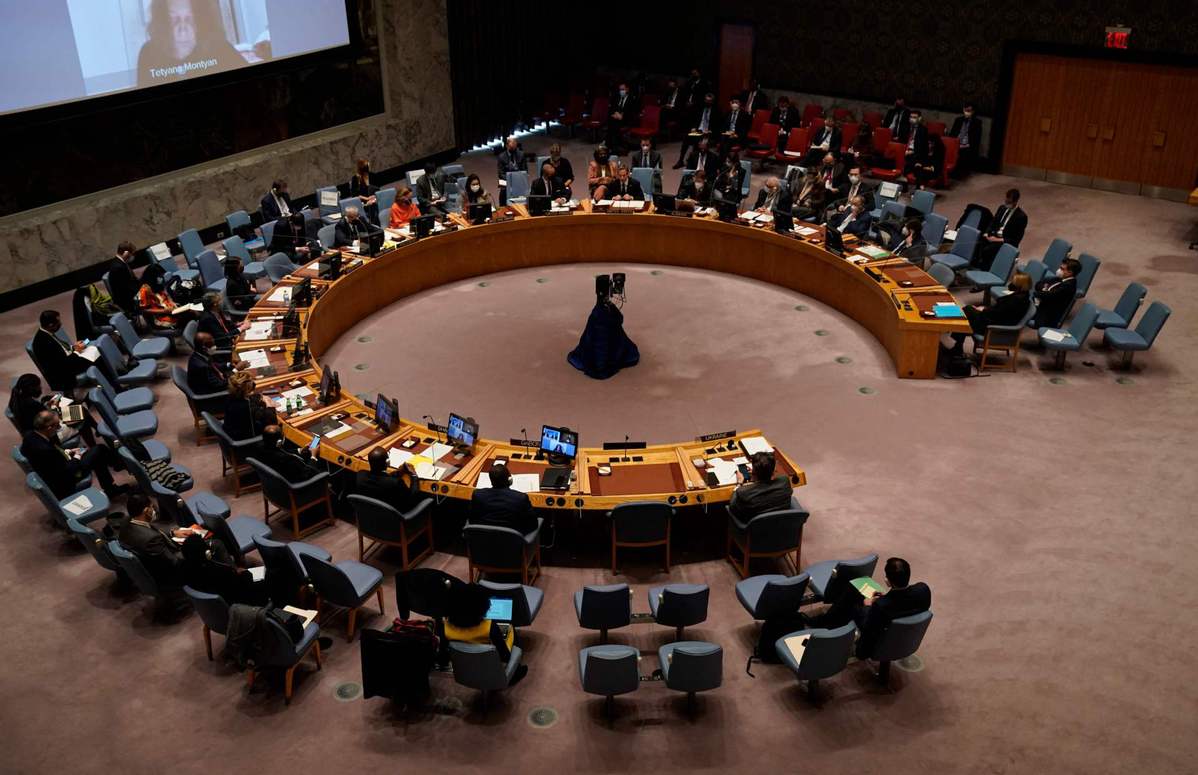UN Security Council fails to adopt resolution on Ukraine


The United Nations Security Council on Friday failed to adopt a draft resolution on Ukraine. The draft resolution, proposed by the United States and Albania, was vetoed by Russia, a permanent member of the UNSC. Any negative vote from the council's five permanent members means a failed resolution.
China, India and United Arab Emirates abstained in the voting. Zhang Jun, China's permanent representative to the UN, reiterated China's position on the Ukraine crisis, and cautioned that any action by the Security Council should be truly conducive to defusing the Ukraine crisis.
"China always forms its own position according to the merits of the matter at hand. We believe that the sovereignty and territorial integrity of all states should be respected, and that the purposes and principles of the UN Charter should be jointly upheld," he said after the voting.
Zhang said China has always called on all parties to seek reasonable solutions to address each other's concerns through peaceful means on the basis of equality and mutual respect. "We welcome and encourage all efforts for a diplomatic solution, and support the Russian Federation and Ukraine in resolving the issue through negotiations," the envoy said.
Zhang said the very complex and sensitive situation calls for the Security Council to make a necessary response. "At the same time, such a response should also be made with extreme caution. Any action should be truly conducive to defusing the crisis, rather than adding fuel to fire," he said.
"If not properly handled, or blindly exerting pressure and imposing sanctions, it may only lead to more casualties, more property loss, more complicated and chaotic situations, and more difficulties in bridging differences," Zhang said.
"It may completely shut the door to a peaceful solution, and eventually it is the vast number of innocent people that will be the victims," Zhang said. He stressed that the world must draw profound lessons from the extremely painful experience in the past. "For this reason, China abstained in the voting just now," he said.
Zhang stressed that the issue of Ukraine is not something that only emerged today; nor did the current situation occur suddenly overnight. "It is a result of the interplay of various factors over a long period of time," he said.
"The legitimate security concerns of all countries should be respected," he said. Against the backdrop of five successive rounds of NATO's eastward expansion, Russia's legitimate security aspirations should be given attention to and properly addressed, Zhang continued.
Zhang said that Ukraine should "become a bridge between the East and the West, not an outpost for confrontation between major powers."
"We strongly call on all parties concerned to exercise maximum restraint, ease tensions, and avoid civilian casualties," he said.
"The final settlement of the Ukraine crisis still requires abandoning the Cold War mentality, giving full attention and respect to the legitimate security concerns of all countries, and conducting negotiations to build a balanced, effective and sustainable European security mechanism," the ambassador said.
"We call on all parties to immediately come back to the track of diplomatic negotiations and political settlement, show sincerity and goodwill, make a political decision and engage in dialogue and consultation for a comprehensive settlement of the Ukraine issue," Zhang said.
































